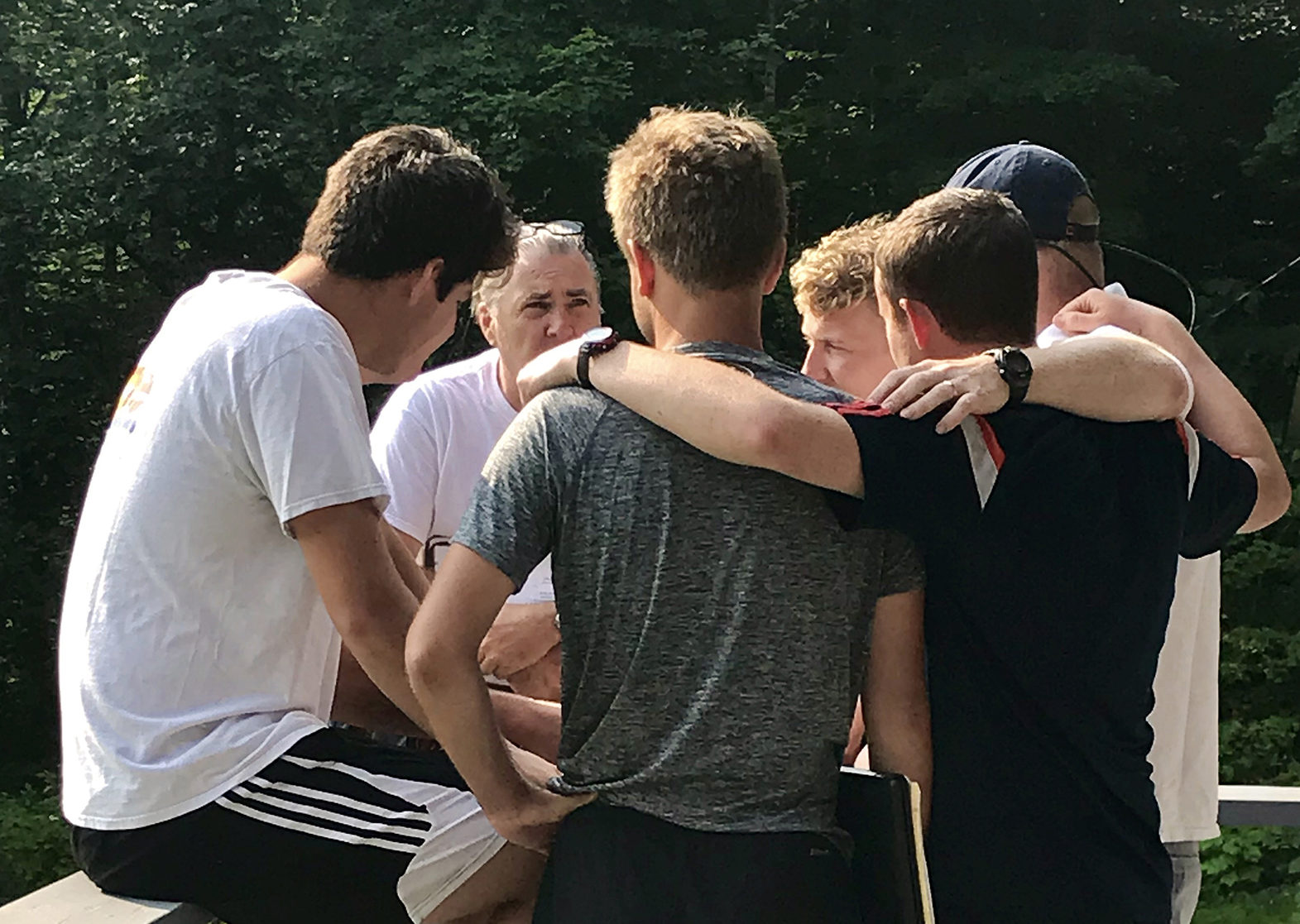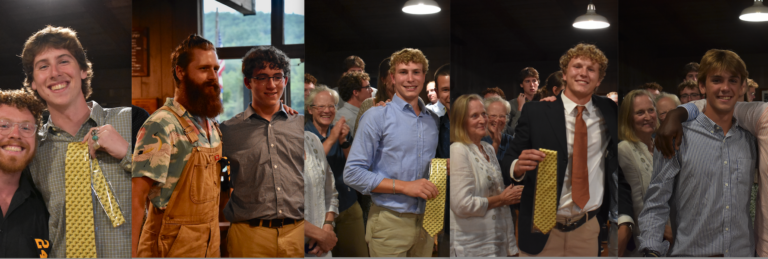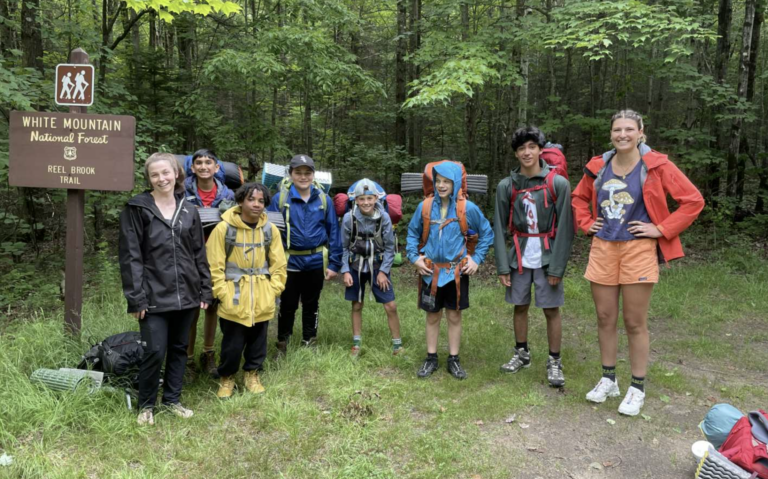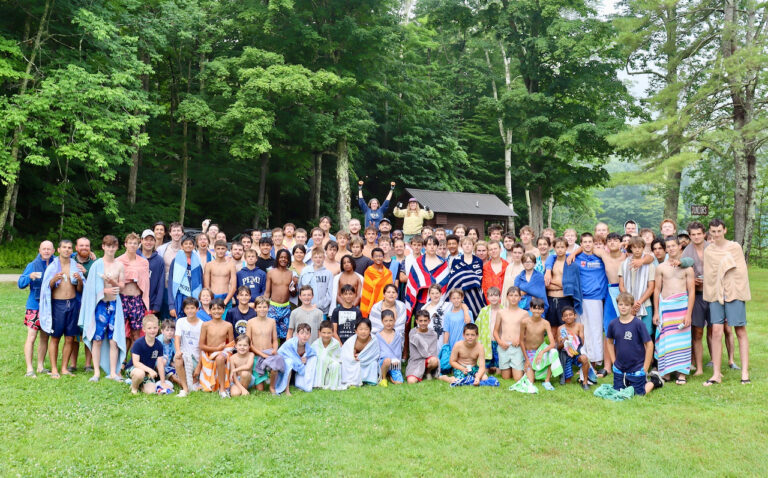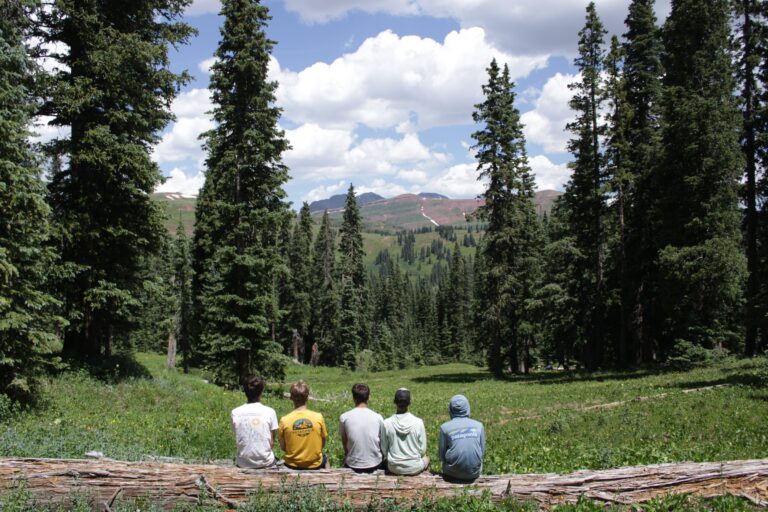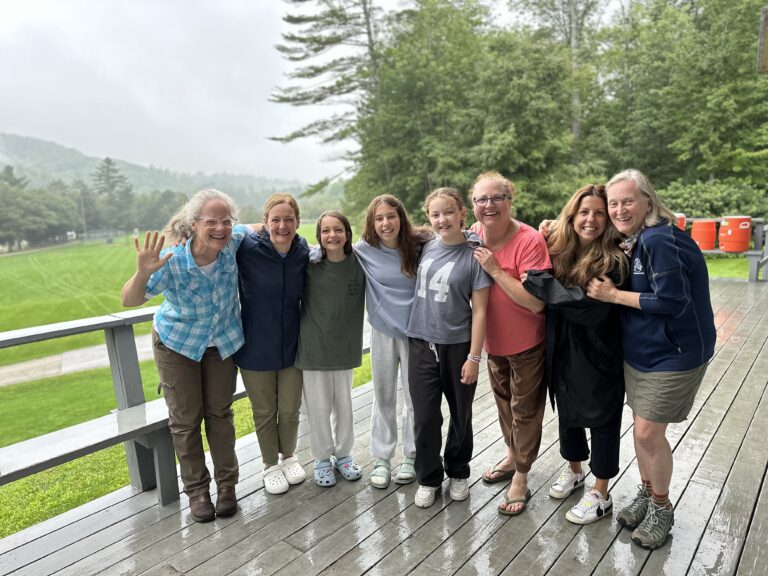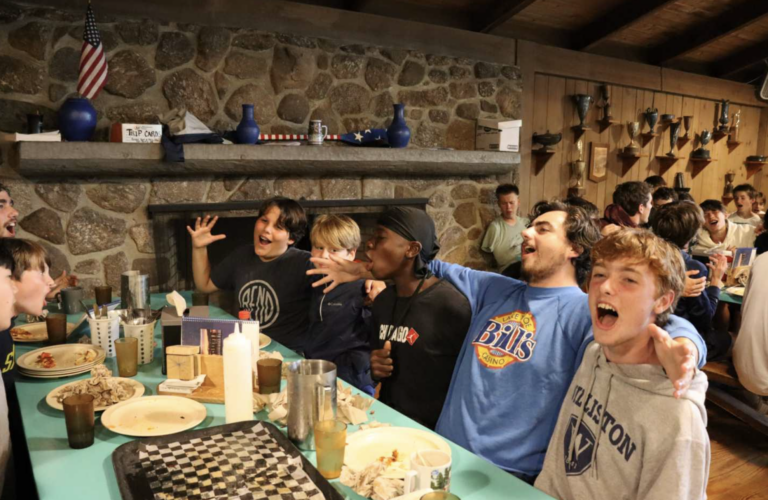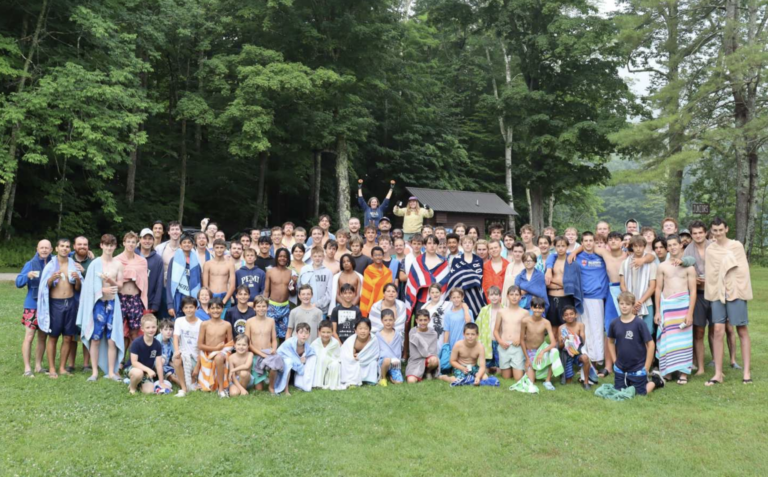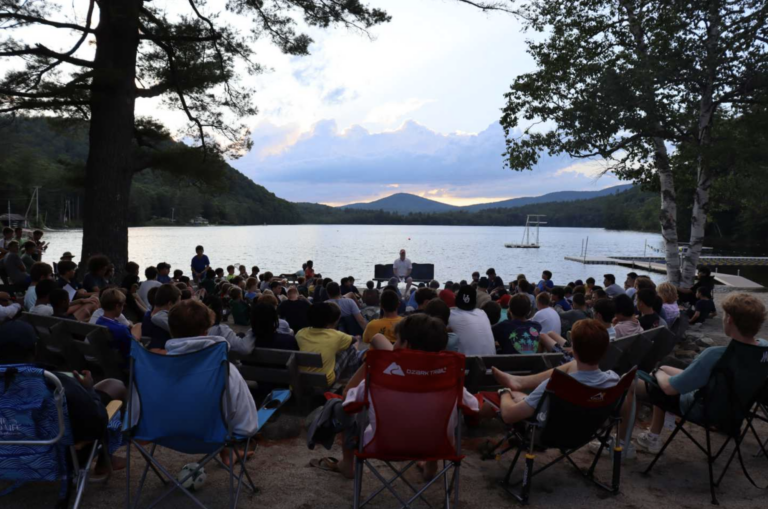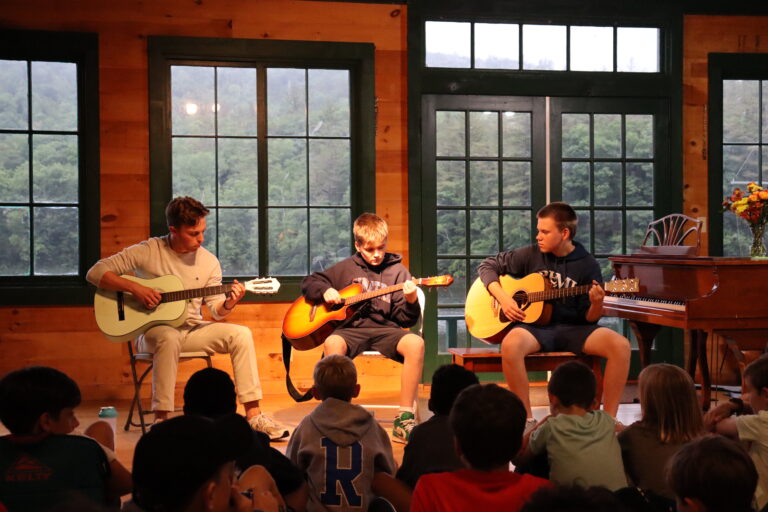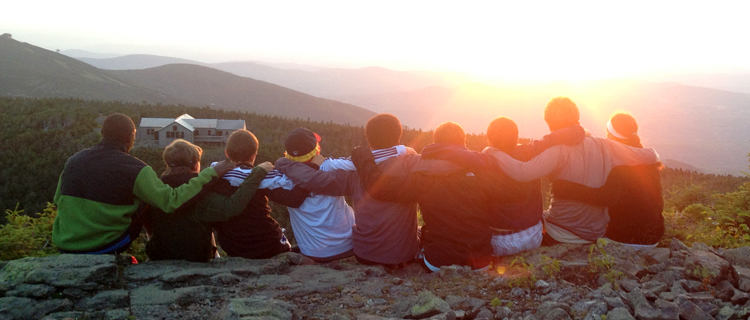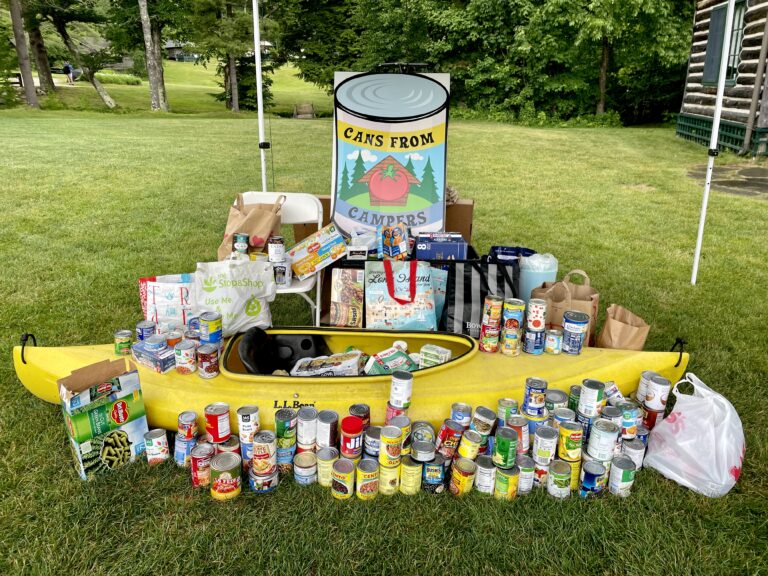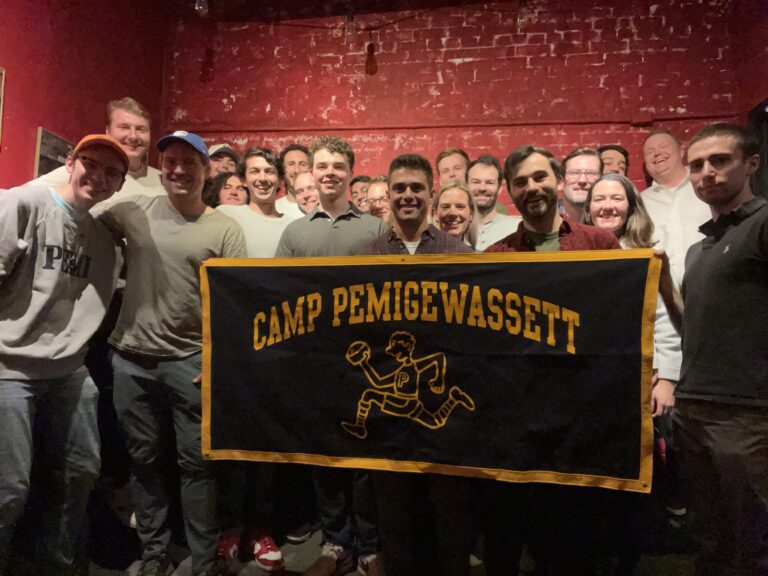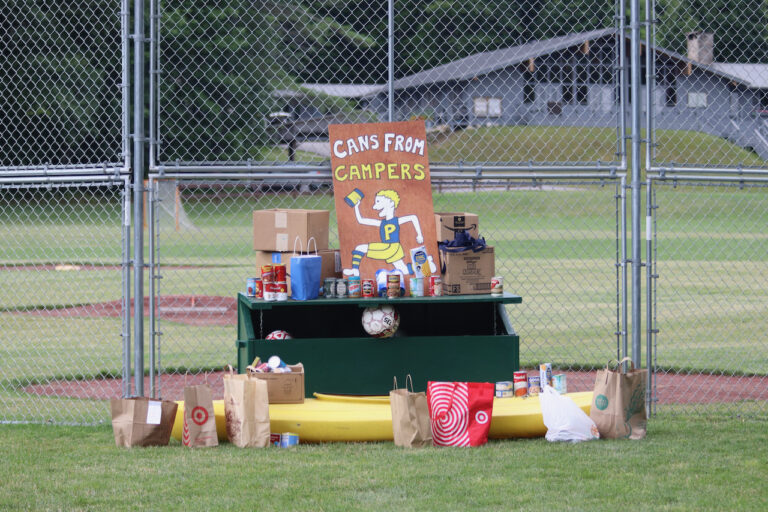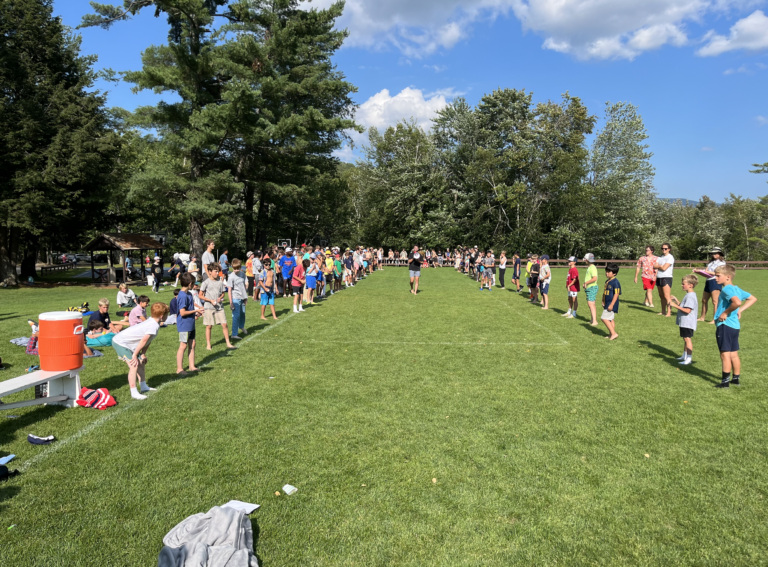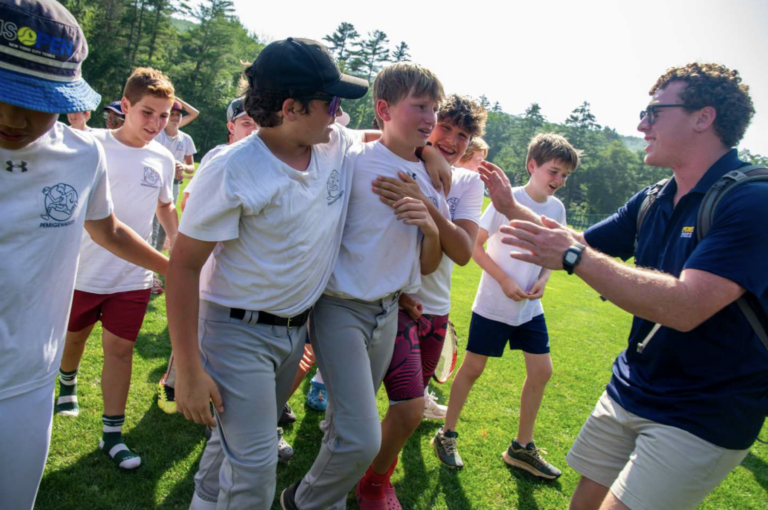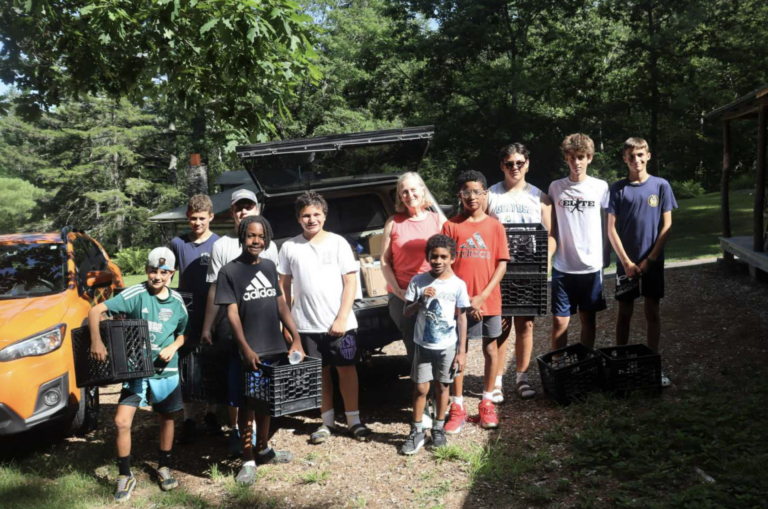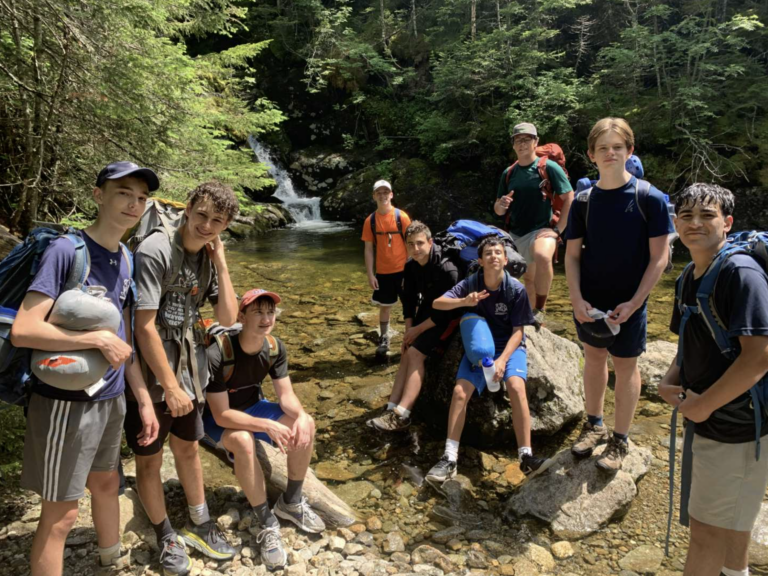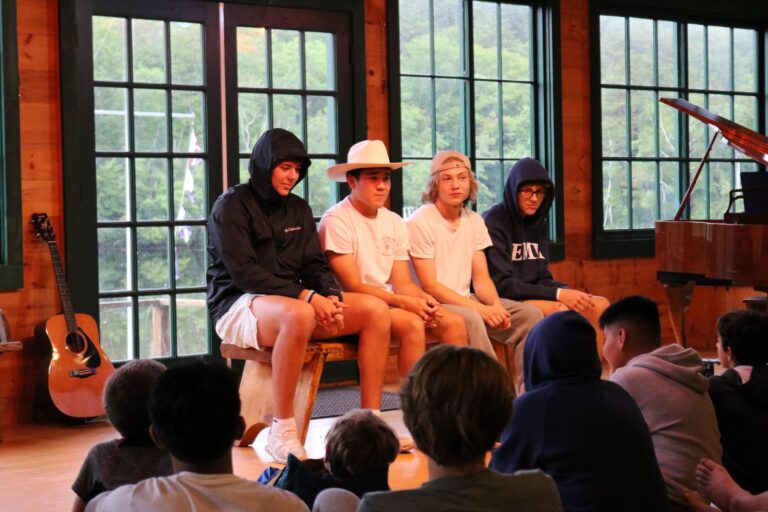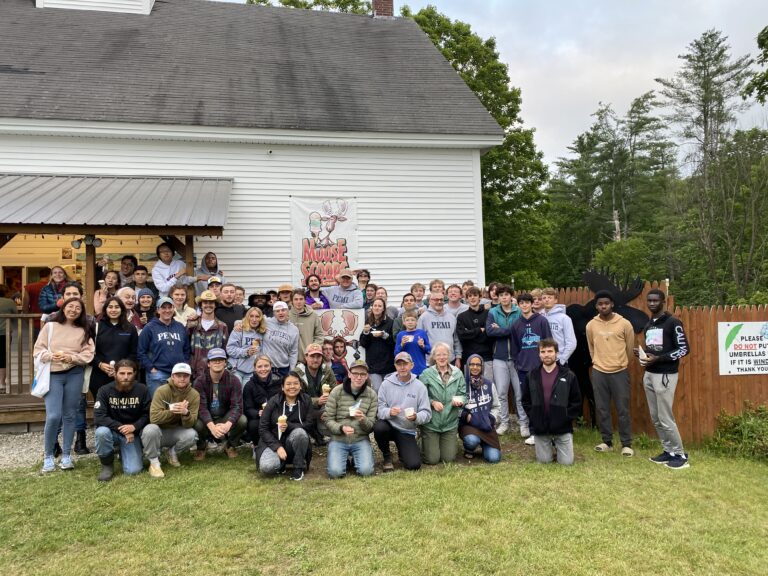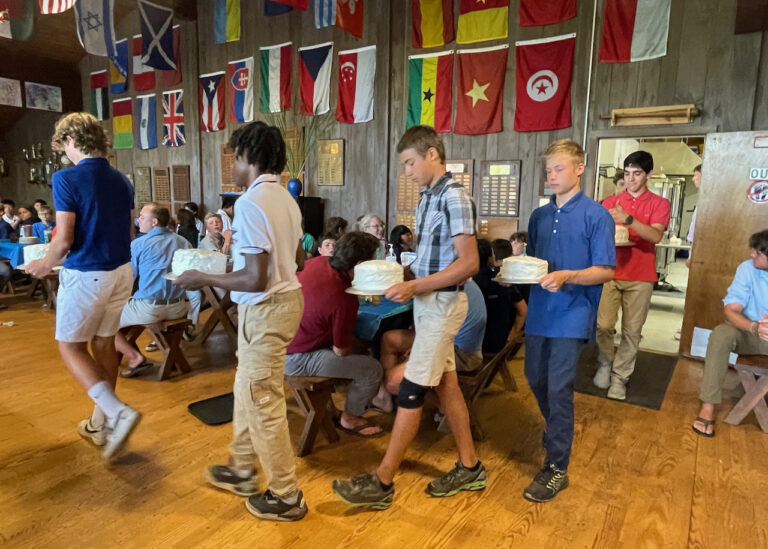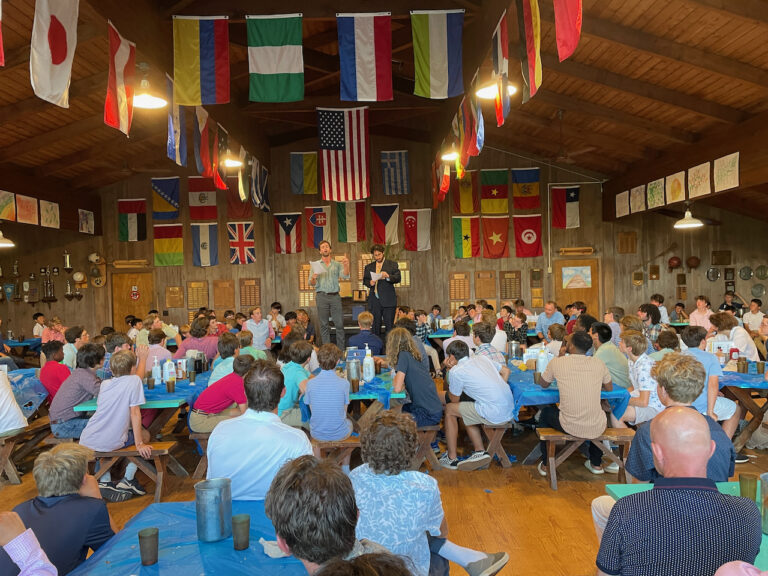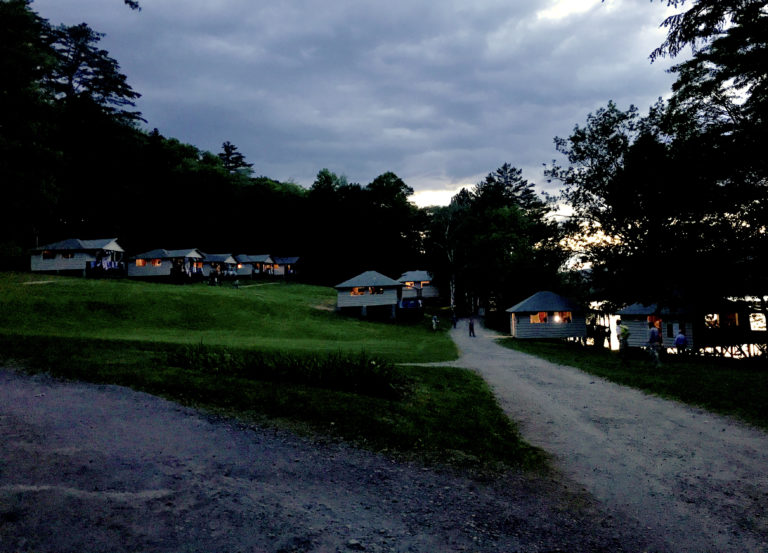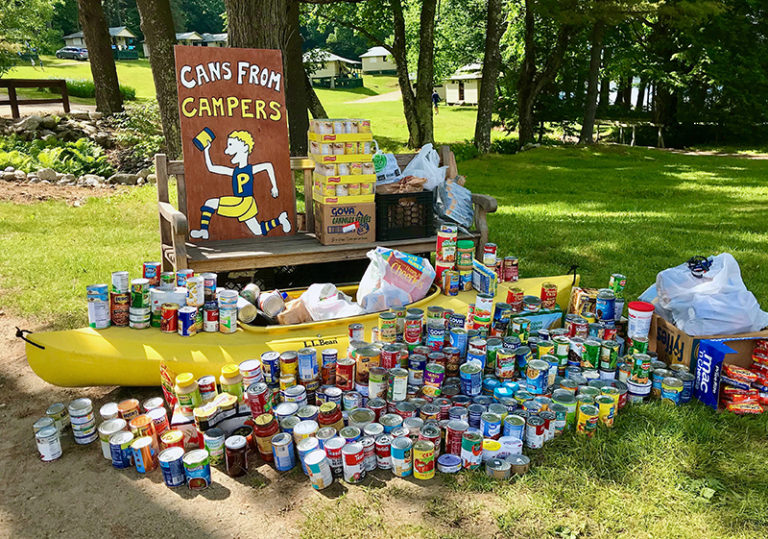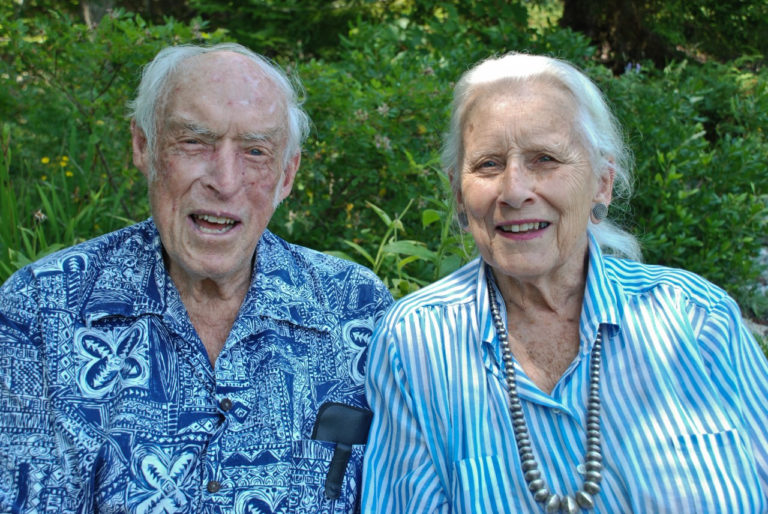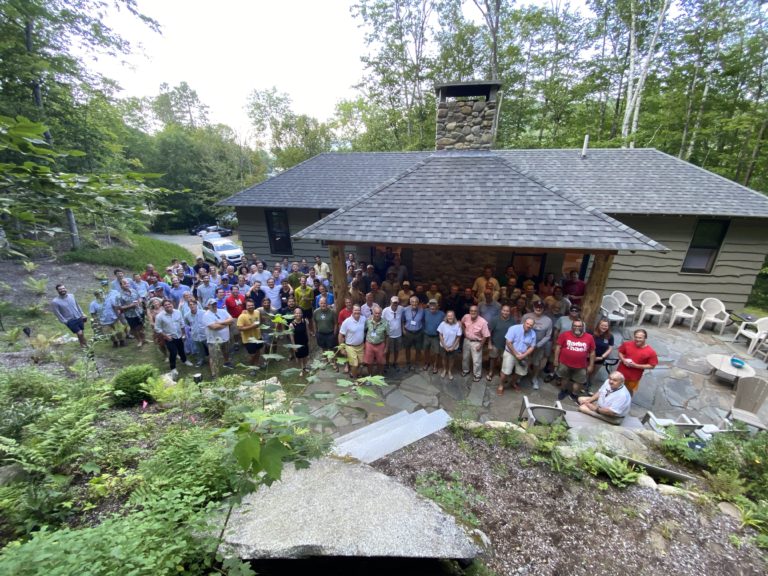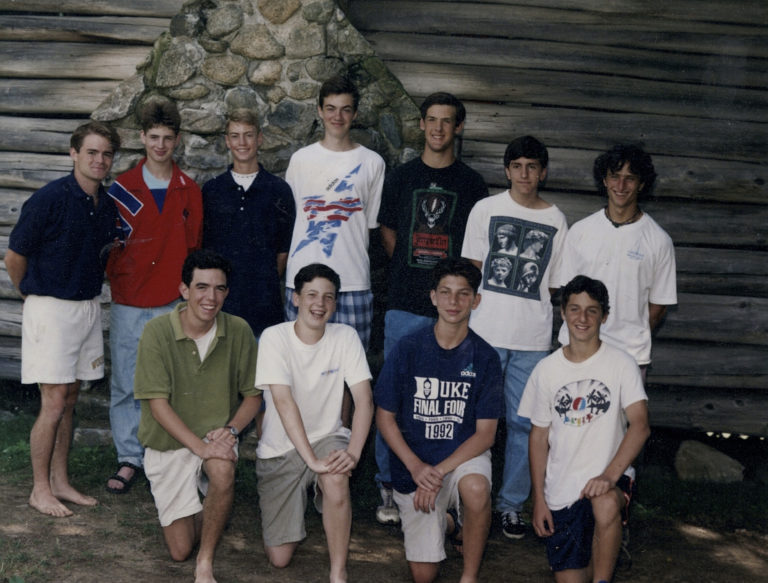- Camp Pemigewassett
- Milestones
- Pemi Alumni
- Pemi History
- Summer 2016
Betsy Mook Reed, May 15, 1917–June 13, 2016
Here, after a busy but excellent summer at Camp Pemi, is the follow-up promised in our earlier post noting Betsy Reed’s death on June 13th.
Betsy died at the Thornwald Home in Carlisle, PA, where she had been living since May, 2014. She was literally only four blocks from Tom and Dottie’s house in town, and she announced within a day of first arriving there that she felt “so safe” amongst such “lovely people.” “Aren’t we lucky?” was for months and months to come her most frequent utterance, always delivered with a twinkling smile. Betsy quickly became the establishment’s songbird, spontaneously breaking into lilting melodies at all hours, for all present – residents, staff, and visitors alike. Even on the morning of June 11th, two days before she died, she brought our visit to a close with her final song – wordless, without any real identifiable melody, but offered with an unmistakably brave and generous spirit, as though to say in the only way she could manage, “Let my last message to you be wrapped in a joyous air.”
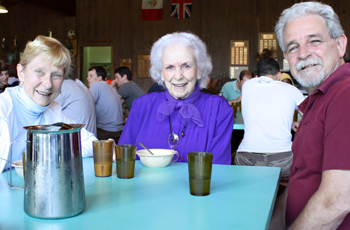 Following Tom’s passing in July of 2010, Betsy had spent her winters in their beautiful apartment in Oberlin, Ohio, to which they had moved from Providence twenty-one years earlier. For decades, they relished the remarkable musical and cultural offerings afforded by the College and Conservatory, and Betsy had learned to embrace the Cleveland Indians at least as warmly as she had the Red Sox. (Tom, by the way, always maintained his boyhood loyalties to his White Sox.) After Tom’s death, she was lovingly looked after both in Oberlin and at Camp Pemi by John Peck and Phyllis Rothemich, dear friends from Warren, New Hampshire, who became family in every important way. All the while, she kept Tom’s ashes on a gate-leg table near her dining room chair, labeled with this handwritten note in which you might catch a whiff of her pragmatic whimsy: “The ashes of Thomas L. Reed, Sr. To be sprinkled at Camp Pemigewassett, Wentworth, New Hampshire, along with those of Betsy Mook Reed – when available.”
Following Tom’s passing in July of 2010, Betsy had spent her winters in their beautiful apartment in Oberlin, Ohio, to which they had moved from Providence twenty-one years earlier. For decades, they relished the remarkable musical and cultural offerings afforded by the College and Conservatory, and Betsy had learned to embrace the Cleveland Indians at least as warmly as she had the Red Sox. (Tom, by the way, always maintained his boyhood loyalties to his White Sox.) After Tom’s death, she was lovingly looked after both in Oberlin and at Camp Pemi by John Peck and Phyllis Rothemich, dear friends from Warren, New Hampshire, who became family in every important way. All the while, she kept Tom’s ashes on a gate-leg table near her dining room chair, labeled with this handwritten note in which you might catch a whiff of her pragmatic whimsy: “The ashes of Thomas L. Reed, Sr. To be sprinkled at Camp Pemigewassett, Wentworth, New Hampshire, along with those of Betsy Mook Reed – when available.”
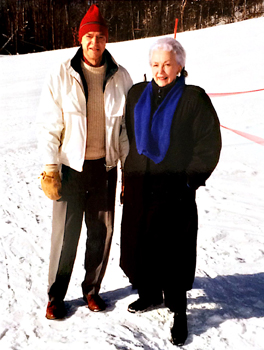 Betsy was born in Cleveland, Ohio, on May 15, 1917, the daughter of DeLo Emerson Mook, a prominent Cleveland lawyer, and Vivian Maynard Mook, a former grade school teacher. Vivian died when Betsy was only three, and for a number of years, she and her older brothers Emerson and Maynard were looked after by a series of housekeepers, not all of whom were, in Betsy’s estimation, perfect Mary Poppinses. After a number of years, though, DeLo married Lois Tuckerman, who became an almost ideal stepmother for the three children: brilliant, attentive, and forever determined to live a life of intellectual fulfillment in an age when women weren’t always afforded that opportunity. Lois’s one shortcoming, according to the ever-stylish Betsy, was that she didn’t care very much about the principles of fashion. (One of the most remarkable things about Betsy, as some of you will remember, was her startling adeptness at climbing one moment into painter’s clothes and transforming a room from ceiling to floor and then, ten minutes after cleaning her brushes, emerging from her dressing room looking prepped for an Richard Avedon portrait). Among the joys of Lois and Betsy’s life together, though, were the summers they spent at DeLo’s wilderness hunting camp in Quebec, where Betsy remembered fishing with First Nation guides and eating wild rice that they had harvested in the bottoms of their birch bark canoes.
Betsy was born in Cleveland, Ohio, on May 15, 1917, the daughter of DeLo Emerson Mook, a prominent Cleveland lawyer, and Vivian Maynard Mook, a former grade school teacher. Vivian died when Betsy was only three, and for a number of years, she and her older brothers Emerson and Maynard were looked after by a series of housekeepers, not all of whom were, in Betsy’s estimation, perfect Mary Poppinses. After a number of years, though, DeLo married Lois Tuckerman, who became an almost ideal stepmother for the three children: brilliant, attentive, and forever determined to live a life of intellectual fulfillment in an age when women weren’t always afforded that opportunity. Lois’s one shortcoming, according to the ever-stylish Betsy, was that she didn’t care very much about the principles of fashion. (One of the most remarkable things about Betsy, as some of you will remember, was her startling adeptness at climbing one moment into painter’s clothes and transforming a room from ceiling to floor and then, ten minutes after cleaning her brushes, emerging from her dressing room looking prepped for an Richard Avedon portrait). Among the joys of Lois and Betsy’s life together, though, were the summers they spent at DeLo’s wilderness hunting camp in Quebec, where Betsy remembered fishing with First Nation guides and eating wild rice that they had harvested in the bottoms of their birch bark canoes.
As a graduate of Harvard Law School, Betsy’s father wanted her to attend Radcliffe, but Betsy had her sights set on a completely co-educational institution, and Oberlin College, some thirty miles from the Mook homestead in Cleveland Heights, became their compromise. Once at Oberlin, Betsy continued the involvement in choral music she had begun in High School, and she soon decided that a major in English best suited the love of the classics she had cultivated with a very literate father and stepmother. She was also quickly noticed as one of the most beautiful young women on campus, and when it emerged that she and the dashing Tom Reed (four-letter athlete and stellar English major in the class just above hers) were seeing each other on a regular basis, it was widely deemed a match worthy of Hollywood.
Tom and Betsy were married on May 17th, 1941, with Tom’s longtime best friend and Camp Pemi compatriot Al Fauver standing as his best man. Tom had begun his graduate studies in Art History at Harvard, but the war led him to enlist in the U.S. Navy, where he served on the medical staff in the Induction Center in New York City. Their daughter Penelope was born in August of 1943 – in New Hampshire, Betsy having retreated to her in-laws’ house at Pemi during one of the hottest summers on record. Son Tom Reed, Jr., followed in June of 1947, after which Tom, Sr., took a position on the Art History faculty at Brown University.
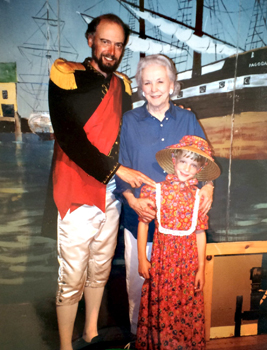 As their years in Providence unfolded, Betsy’s love of working with children (together with a remarkable talent for woodworking that she had picked up who-knows-where?) led her to jobs, first, at The Gordon School and, then, at Providence Country Day School, teaching what was then quaintly dubbed “Manual Training.” Summers, of course, were spent at Camp Pemi, where in the summer of 1951, Betsy and Scott Withrow were the motive forces behind the first-ever Gilbert and Sullivan production at our camp, HMS Pinafore. The show featured Betsy as Josephine and the future mayor of Indianapolis, Bill Hudnut, at Ralph Rackstraw. She thereafter kept that ball in the air for well over half a century, making Pemi an incalculably richer place as a result.
As their years in Providence unfolded, Betsy’s love of working with children (together with a remarkable talent for woodworking that she had picked up who-knows-where?) led her to jobs, first, at The Gordon School and, then, at Providence Country Day School, teaching what was then quaintly dubbed “Manual Training.” Summers, of course, were spent at Camp Pemi, where in the summer of 1951, Betsy and Scott Withrow were the motive forces behind the first-ever Gilbert and Sullivan production at our camp, HMS Pinafore. The show featured Betsy as Josephine and the future mayor of Indianapolis, Bill Hudnut, at Ralph Rackstraw. She thereafter kept that ball in the air for well over half a century, making Pemi an incalculably richer place as a result.
Betsy’s later involvements in Providence included her taking an apparel design course at the Rhode Island School of Design (to which Tom had moved in the mid 1950’s) and then teaching the same at Providence’s storied Handicraft Club. Her circle of friends and former students in Providence was huge and appreciative, so when she and Tom moved to Oberlin in May of 1989, some of us were worried that she would miss the connectedness involved. Always outgoing and gregarious, though, she and Tom quickly established themselves as dynamic members of Oberlin’s community of cosmopolitan seniors. They continued to love and indulge in European travel, something they had begun with Penelope and Tom, Jr., on Tom, Sr’s year-long sabbatical in 1953-54. It was then, in fact, that Betsy first and indelibly established her capacity to travel with a modestly-sized suitcase yet emerge every day as though Edith Head and a dozen wardrobe assistants had seen to her apparel.
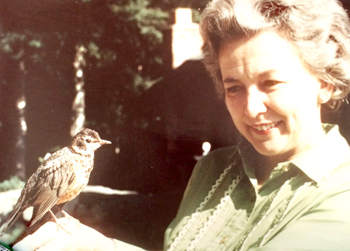 Effortless grace. That, whether it was apparent or actual, was Betsy’s essence. Her kindness flowed from her soul – instinctually, it seemed. She was willing to tackle absolutely anything and, by the time she had thought about it for a moment or two, her impeccable planning flowed into speedy execution and, thence, into most satisfactory completion. She was beautiful, but in a modest way that never called attention to itself. She sewed, and entertained, and built as though a needle and thread, Amy Vanderbilt’s books on etiquette and cuisine, and a hammer and Skil-saw had been the equipage of her cradle. In another age, she could have been anything. In her own, she was happy and fulfilled attending to the world she found around her – as an adoring but sometimes skeptical wife, a loving yet challenging mother (to hundreds of camp boys as well as Penelope and Tom, Jr.), an inspiring teacher, and a spirited fellow traveler to all who knew her. “Hurricane Betsy,” is what Tom, Jr. liked to call her – “wreaking order wherever she goes.” Order and joy.
Effortless grace. That, whether it was apparent or actual, was Betsy’s essence. Her kindness flowed from her soul – instinctually, it seemed. She was willing to tackle absolutely anything and, by the time she had thought about it for a moment or two, her impeccable planning flowed into speedy execution and, thence, into most satisfactory completion. She was beautiful, but in a modest way that never called attention to itself. She sewed, and entertained, and built as though a needle and thread, Amy Vanderbilt’s books on etiquette and cuisine, and a hammer and Skil-saw had been the equipage of her cradle. In another age, she could have been anything. In her own, she was happy and fulfilled attending to the world she found around her – as an adoring but sometimes skeptical wife, a loving yet challenging mother (to hundreds of camp boys as well as Penelope and Tom, Jr.), an inspiring teacher, and a spirited fellow traveler to all who knew her. “Hurricane Betsy,” is what Tom, Jr. liked to call her – “wreaking order wherever she goes.” Order and joy.
A celebration of Betsy’s life will be held some time in the coming year, perhaps in conjunction with Pemi’s 110th Reunion next summer. In the mean time, contributions in her memory may be sent to Women & Infants Hospital in Providence, where Betsy volunteered; The World Wildlife Fund; or The Fred Rittner Pemi Campership Fund.
~ Tom Reed, Jr.



